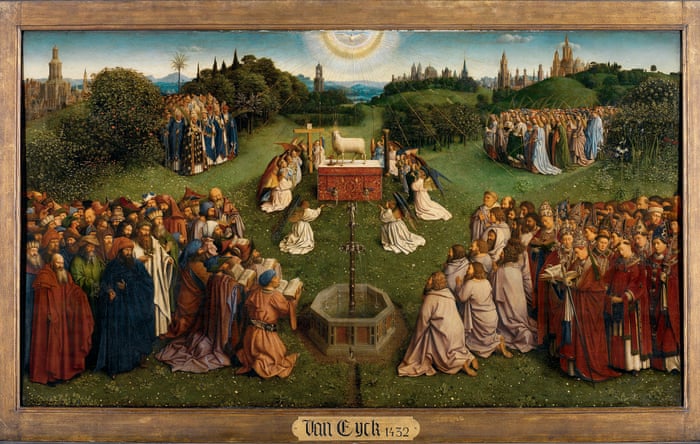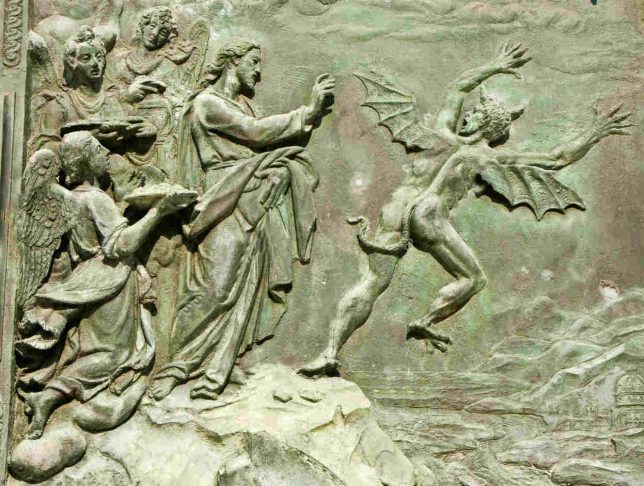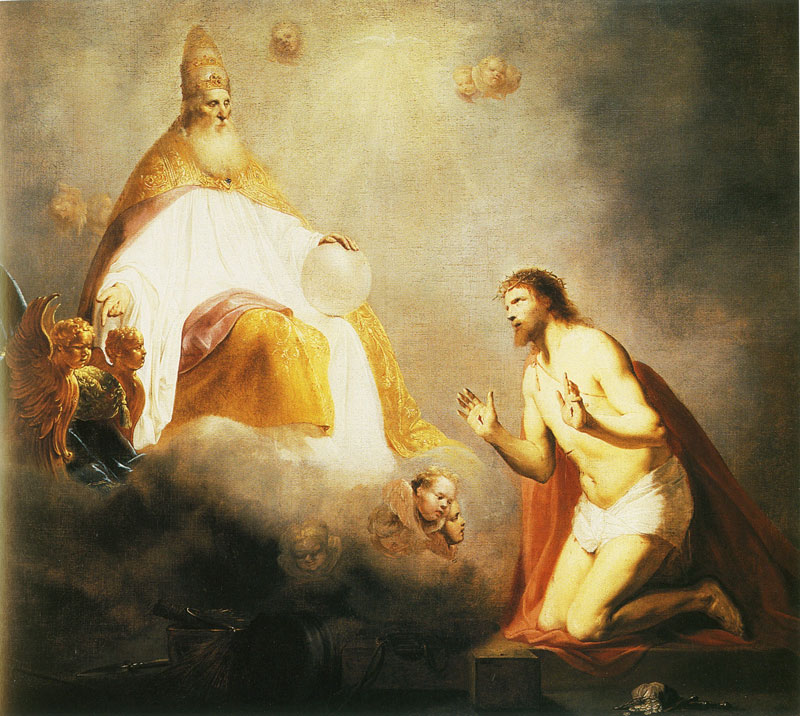
In that day you will ask in My name, and I do not say to you that I shall pray the Father for you; for the Father Himself loves you, because you have loved Me, and have believed that I came forth from God.
Jesus makes a rather subtle point in this passage. While we can sometimes slip into understanding Jesus’ intercession for us as if He “covers for us” – because we’re sinners who have no right to be in the presence of God, but through Christ – this is not what Jesus teaches. He specifically says, and I paraphrase, “I’m not saying I’ll pray to the Father for you, for the Father loves YOU, because you love me and believe in Me.”
Our love for Christ, for our Savior, and our belief in Him – we recall from last week’s Gospel that with Christ’s ascension, sin has been redefined as lack of faith in Him – is the reason the Father loves us and hears us as ourselves. Yes, we pray in Christ’s name. Yes, the foundation of our righteousness is not in us but in Christ’s sitting at God’s right hand – that too we learned from last week’s Gospel. But all this adds up to the truth that the Father sees us as His dear children in and of ourselves. It’s not as if He’s wrathful at us if ever He sees us without our “Jesus cloak” on. No, we have become new creations in Christ. We ourselves are newly formed people in Christ. And on those terms the Father sees us, in ourselves.
We ought to have confidence and boldness in this. As the St. Paul writes to the Ephesians, “in [Christ] we have boldness and access with confidence through faith in Him.”
As the writer to the Hebrews puts it, “Let us therefore come boldly to the throne of grace, that we may obtain mercy and find grace to help in time of need.” And again, “Therefore, brethren, having boldness to enter the Holiest by the blood of Jesus, by a new and living way which He consecrated for us, through the veil, that is, His flesh, and having a High Priest over the house of God, let us draw near with a true heart in full assurance of faith, having our hearts sprinkled from an evil conscience and our bodies washed with pure water.”
And finally as St. John put it, “Love has been perfected among us in this: that we may have boldness in the day of judgment; because as He is, so are we in this world.”
John also adds this little warning, “Beloved, if our heart does not condemn us, we have confidence toward God.”
So, it should be clear: we can have boldness and confidence to enter into the throne room of our Father and pray, well, “Our Father…” He is after all, our Father!
Now boldness and confidence doesn’t mean casualness and lack of respect or godly fear. If “Honor thy father and mother” remains true for earthly fathers, how much more for our heavenly Father.
On the other hand, boldness and confidence should eradicate all traces of the “we just” prayer. What is the “we just” prayer? Or as it’s sometimes referred to, the “Lord Wejus” or “Father God Wejus.” It’s the pattern you will hear in 90-100% of evangelical or non-denominational prayers. “Lord, we just lift your name on high, and Father God we just ask you to do X, Y, and Z, and we just pray this in the holy name of Jesus, Amen.”
No, we don’t just pray to the Father. “Just” implies we are assuming a posture of fear and inconvenience for the Father. “Hey, Father God, I just have one little request for you and then I’ll get our of your hair. Sorry to bother you, but I just wanted to ask these teensy little favor.”
“Just” is a word we use when we take a posture like that. That is not the posture Jesus teaches, and the incredible overuse of the word in prayer – to such a point it’s become a verbal tic – is a huge argument for going back to written out, formal prayers. If Christians cannot pray well without falling back into verbal tics and cliched verbiage, there’s no shame in putting the thought into the prayer prior to the actual prayer so they can speak something that has some power, beauty, and meaning.
What’s wrong with writing out formal prayers prior to the time of prayer? Is it less “heartfelt” because someone spent a half hour meditating on the right words to say to the Lord rather than whipping something out in fifteen seconds under the pretense that, somehow it’s better to approach God with the same old “prayer boilerplate” we hear in every other prayer?
When the disciples asked Jesus how to pray, He didn’t say, “Just pray what you feel and talk to God like you’re talking to an old buddy.” No, He taught the Our Father. Confidence, yes. Boldness, yes. And also honor and respect. And it’s never boilerplate because Jesus taught it. Each praying of the Lord’s prayer is alike a re-immersion in our baptism.
The “We just” prayers have got to go. They entered into the Christian DNA at the same time many the other bad habits entered into Christianity, with the rise and dominance of evangelical Christianity in the 70s and 80s. This was when beauty began to drain out of the church, when reverence for God declined, when the Church lost any sense of sacramentality, when Christians lost interest in some of the most profound poetry known to man in its hymns, when Bach got replaced by a rock band for crying out loud. The 60s rebels asked the question, “Why does the devil get all the good music?”, never contemplating the devil chooses things based on what he is, which last we checked is pure, unbridled evil. What an incredibly stupid question.
As this obnoxious Christian movement began to dominate the Christian DNA, we got “corporate Christianity,” and with that, the sort of boilerplate that goes along with corporate America, that “way of talking” and acting, ever quick to talk about ones “testimony” rather than Christ, reducing Christianity to a few trite phrases that sound wise but mean nothing: “It’s all about a relationship and building relationships because relationships.” “Lord Father God, we just this and we just that.”
The “We just” prayers have got to go. And this for a simple reason from Jesus’ words for today’s meditation: we don’t “just” get to do anything with our Father, because He loves us and loves to hear our prayers and petitions. There’s no “just” in that.








